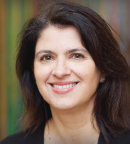Promising activity in metastatic pancreatic cancer was shown by sotorasib, an inhibitor of the KRAS G12C mutation, in the phase I/II CodeBreaK 100 study presented by John H. Strickler, MD, Associate Professor of Medicine at Duke University Medical Center in Durham, North Carolina, during the February session of the 2022 ASCO Plenary Series.1

John H. Strickler, MD
Treatment with sotorasib was associated with a centrally confirmed objective response rate of 21.1% and a disease control rate of 84.3% in heavily pretreated patients, demonstrating “clinically meaningful activity” in the largest data set yet to evaluate the efficacy and safety of a KRAS G12C inhibitor in pancreatic cancer, Dr. Strickler said.
Sotorasib is an irreversible KRAS G12C inhibitor that has been approved by the U.S. Food and Drug Administration for the treatment of non–small cell lung cancer with KRAS G12C mutations. Although KRAS mutations are almost ubiquitous in metastatic pancreatic cancer, only 1% to 2% are KRAS G12C mutations. Currently, there are no approved targeted therapies for this subset of patients, and their survival after experiencing disease progression on two regimens is usually less than 6 months, Dr. Strickler noted.
About CodeBreaK 100
CodeBreaK 100 is a global, phase I/II study evaluating the efficacy and safety of sotorasib in patients with advanced solid tumors with a KRAS G12C mutation. The population included 38 patients with stage IV pancreatic cancer who were treated with at least one prior systemic therapy or who were not eligible for or able to tolerate available therapies.
More than half the patients had de novo stage IV disease at diagnosis, and 79% had received at least two prior lines of therapy. Patients were treated with oral sotorasib at 960 mg daily. The primary efficacy endpoint was confirmed objective response rate.
Median treatment duration was 4.1 months, and median follow-up was 16.8 months. By blinded central review of the intent-to-treat population, 8 patients (21.1%) had a confirmed partial response, 32 (84.2%) attained disease control, and the median duration of response was 5.7 months.
Of the 38 patients, 30 had a reduction in the sum of their lesions over baseline, and 2 patients had ongoing responses at data cutoff. Median progression-free survival was 4.0 months, and median overall survival was 6.9 months.
Sotorasib was well tolerated, with most treatment-related adverse events being grade 1 or 2 and manageable. Grade 3 diarrhea and fatigue were seen in two patients each (5.3%), and one patient each (2.6%) developed abdominal pain, increased transaminases, pleural effusion, and pulmonary embolism. There were no grade ≥ 4 toxicities. Five patients (13.2%) had doses reduced or interrupted due to treatment-related adverse events, but no patients discontinued treatment.
Putting the Results in Context
In the discussion period, Dr. Strickler was asked to put these results in context with recent findings for another KRAS G12C inhibitor, adagrasib. In the KRYSTAL-1 trial, the response rate was 50% in 10 evaluable patients, and the disease control rate was 100%.2 The duration of response and median progression-free survival were also somewhat longer than was seen with sotorasib.
“As we are now seeing data presented from two different molecules, it’s tempting to compare them, but I encourage us to take a step back and put these results in context,” he said. The CodeBreaK 100 trial, Dr. Strickler noted, examined outcomes in all patients who received a dose of the drug: “All were evaluable and placed in the denominator.”
KEY POINTS
- The KRAS G12C inhibitor sotorasib showed encouraging activity in heavily pretreated advanced pancreatic cancer in the phase I/II CodeBreaK 100 trial.
- In a study of 38 patients, the response rate was 21.1% and disease control rate was 84.3%; safety and tolerability were good.
Additionally, all responses were confirmed by blinded independent central review. The importance of this is clear from the initial study of sotorasib,3 in which 1 patient out of 12 was counted as a responder, but the count was increased to 3 patients by central review, he noted. “This shows the importance of blinded independent central review. The good news for both molecules is that clearly there’s substantial activity for a patient population that desperately needs breakthroughs.”
DISCLOSURE: Dr. Strickler has served as a consultant or advisor to AbbVie, Amgen, AstraZeneca, Bayer, GlaxoSmithKline, Inivata, Mereo Biopharma, Natera (institutional), Pfizer, Roche/Genentech (institutional), Seattle Genetics, Silverback Therapeutics, and Viatris; and has received institutional research funding from A*STAR, AbbVie, Amgen, AstraZeneca/MedImmune, Bayer, Curegenix, Daiichi Sankyo/Lilly, Erasca, Exelixis, Leap Therapeutics, Nektar, Roche/Genentech, Sanofi, Seattle Genetics, and Silverback Therapeutics.
REFERENCES
1. Strickler JH, Satake H, Hollebecque A, et al: First data for sotorasib in patients with pancreatic cancer with KRAS p.G12C mutation: A phase I/II study evaluating efficacy and safety. 2022 ASCO Plenary Series. Abstract 360490. Presented February 15, 2022.
2. Bekaii-Saab TS, Spira AI, Yaeger R, et al: KRYSTAL-1: Updated activity and safety of adagrasib (MRTX849) in patients with unresectable or metastatic pancreatic cancer and other gastrointestinal tumors harboring a KRAS G12C mutation. 2022 ASCO Gastrointestinal Cancers Symposium. Abstract 519. Presented January 21, 2022.


